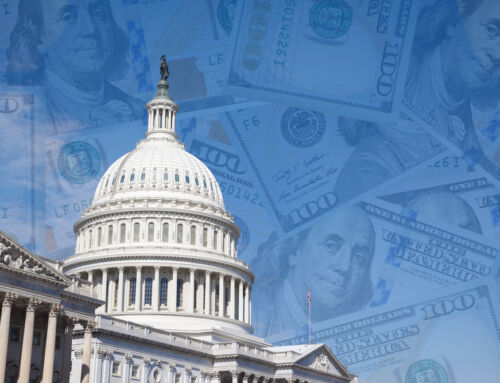I recently wrote about potential tax deductions for residents of a continuing care retirement community (CCRC, or life plan community). In short, depending on your individual tax situation, a deduction may be available to you on a portion of your CCRC entry fee, as well as a portion of your ongoing monthly fees since they can be classified as prepaid medical expenses. But did you know that if you are a retired member of the clergy, you may be able to save even more on your taxes?
The minister’s housing allowance
If you served in the clergy during your career, you likely already know a bit about ministerial housing allowances.
To summarize, the federal tax code exempts from federal income taxes a portion of a clergyperson’s compensation that has been designated in advance by their employing church as a “housing allowance.” This allowance must be used for housing expenses and cannot exceed the home’s fair rental value.
Similarly, the rental value of a parsonage or manse provided by the church to its clergyperson as compensation for ministerial services is exempt from income taxes.
It’s important to note that a housing allowance is considered an “exclusion from income,” not a deduction. This means that for federal income tax purposes, it is not reported as part of your gross income. In other words, it is not deducted because it is not reported as income in the first place.
>> Related: Understanding Tax Deductions for CCRC Residents
Housing allowances from a 403(b) retirement savings account
As always, I want to preface this by saying you should always consult with an experienced tax professional when making any tax-related decisions. However, for retired members of the clergy, you may be able to declare a portion of distributions from your 403(b) retirement savings account as a housing allowance, which would make that part of your distribution tax-free.
It’s important to note that, as with the housing allowance you received while still working, this would be considered an “exclusion from income,” not a deduction.
Here is how this unique benefit of this type of retirement savings account works:
- In most cases, 100 percent of a retired clergyperson’s 403(b) distributions is automatically designated as “housing” by their denomination’s board of pensions or other authorized governing body.
- The minister must therefore determine and report their actual housing allowance amount on Form 1040 or 1040-R when they file their federal taxes.
- The amount claimed must be the lesser of either their actual housing expenses for that year or the actual fair rental value of their home.
The housing allowance can only be declared for income earned in your service as a clergyperson — not for any supplemental income you may have earned from another source. This pertains to rollovers or transfers into a 403(b) account, as well as money contributed directly to it. Put another way, you are not permitted to transfer money from other retirement accounts into a 403(b) and use the retired minister housing allowance on those transferred funds.
>> Related: Will My Refundable Entry Fee Be Taxed?
Qualified housing expenses
Again, if you are a retired member of the clergy, you may already be aware of the ins and outs of how the housing allowance works. As a reminder, for tax purposes, here are some of the expenses that would qualify as housing expenses during your retirement years:
- Down payment on a home
- Rent and mortgage payments (principle and interest)
- Real estate taxes
- Property insurance
- Utilities (e.g., electricity, gas, water, sewer, trash, local telephone charges, internet)
- Furnishings and appliance purchases and repairs
- Structural repairs
- Yard maintenance
- Home equity loan payments used for housing expenses
- Maintenance items (household cleaners, light bulbs, pest control)
- Homeowner’s association dues
It’s also important to bear in mind some of the expenses that do NOT qualify as housing expenses when you are calculating your taxes, for example:
- Food
- Cleaning services
- Domestic help
- A second home, vacation home, business property, or farm
- Home equity loan payments used for anything other than housing expenses
Who qualifies for the minister’s housing allowance?
AGFinancial does a good job of breaking down the qualifications for this unique tax benefit for retired clergy. If you answer “yes” to all five of these questions, you may be eligible for the IRS’s retired minister’s housing allowance:
- Did/do you hold ministerial credentials with a religious fellowship/church denomination?
- Did you receive compensation for ministerial duties?
- Do you have a 403(b) retirement account with a religious fellowship/church denomination?
- Have you made contributions out of your ministerial earnings into your 403(b)?
- Are you currently retired, as defined by the IRS?
If you check all five of these boxes, you also must be eligible to receive distributions from your 403(b) in order to begin claiming this benefit. This usually happens no earlier than age 59½, except under certain situations specified by the IRS and your 403(b) plan.
>> Related: What’s the True Cost of Staying in the Home?
Housing allowances for CCRCs or nursing homes
You may be wondering how this retired minister’s housing allowance works at a CCRC.
The housing allowance may be used to buy into a retirement community, such as a CCRC entrance fee. However, the entrance fee can only be claimed as a housing expense in the year you move into the community; it cannot be prorated over multiple tax years. Also, it isn’t clear to me if there is a maximum dollar amount that can go towards an entrance fee and still be eligible for the tax exemption; you will need to talk with your tax professional for more details on that.
Regarding the CCRC monthly fee, the retired clergyperson-CCRC resident may exclude from their taxable income the portion of their monthly fee that is for housing. They may not exclude fees for meals, healthcare services, housekeeping, or other non-housing-related expenses that might be lumped into that fee. The CCRC should be able to provide an itemized breakdown of what is covered by the monthly fee.
Along a similar vein, if a retired member of the clergy is a permanent resident of a nursing home, the housing allowance applies only to the housing portion of the nursing home’s fees; charges for food and medical care would not qualify. The nursing home administrator can provide the portion of the monthly payments that represents housing costs. Importantly, if the housing allowance is applied against the retired minister’s nursing home costs, it cannot also be applied to the home where the minister’s spouse lives.
>> Related: 3 Alternative Ways to Fund the Entry Fee at a CCRC
Always talk with a tax professional
The retired minister’s housing allowance may be able to save retired members of the clergy on their federal income taxes. But tax laws can be confusing and complicated. That’s why it is important to consult with an experienced tax professional who is knowledgeable about clergy tax laws and, more specifically, the retired minister’s housing allowance.
A few other important points to keep in mind if you are a retired clergyperson who is using or planning to use this housing allowance exclusion:
- The federal income tax exclusion can only be claimed on your primary residence.
- A spouse’s income cannot be included for housing allowance exclusion.
- Surviving spouses are not eligible for the exclusion.
- You are responsible for accurately calculating the amount of the exclusion, and you are responsible for retaining supporting documentation in case you are audited by the IRS.
Disclaimer: The information presented in this post should not be construed as legal or tax advice. Be sure to consult with your legal and tax advisors before making any decisions regarding the retired minister’s housing allowance, CCRC entry fees, or monthly fees, and to better understand the possible related federal and state tax implications.






